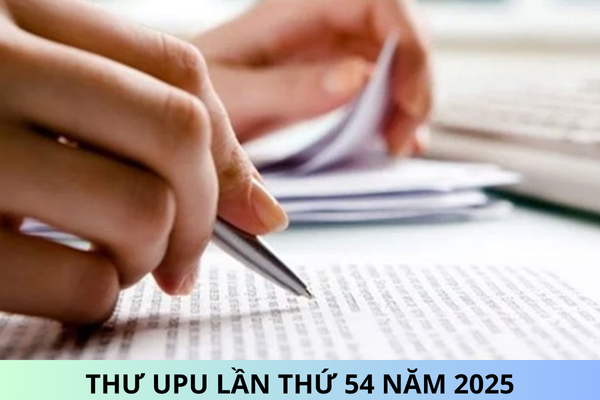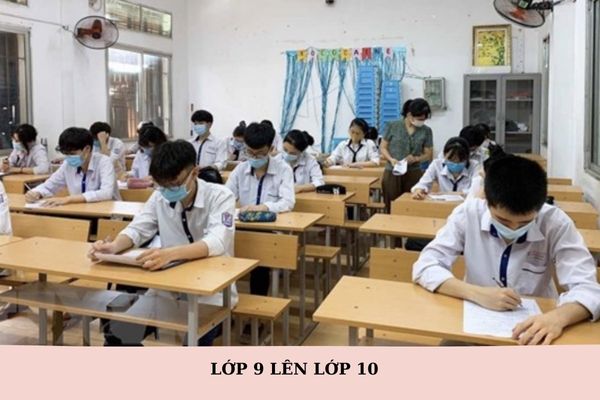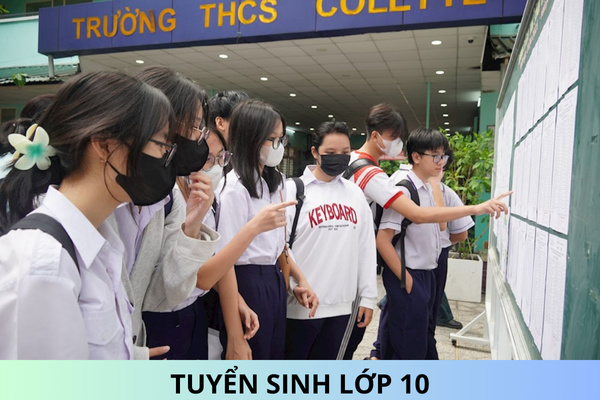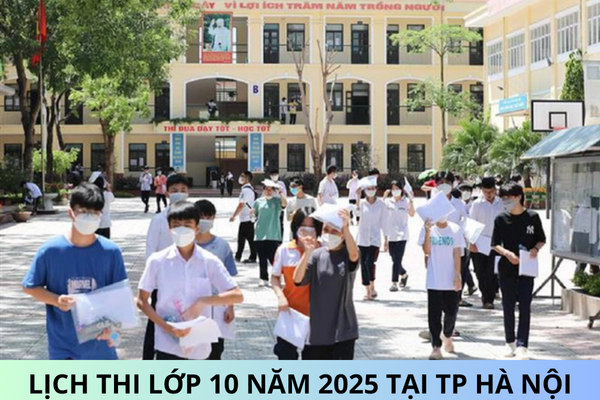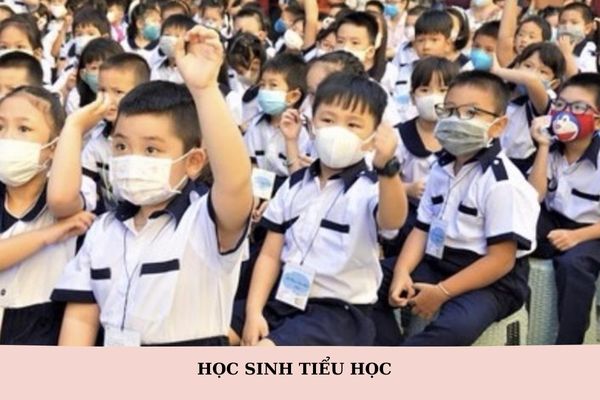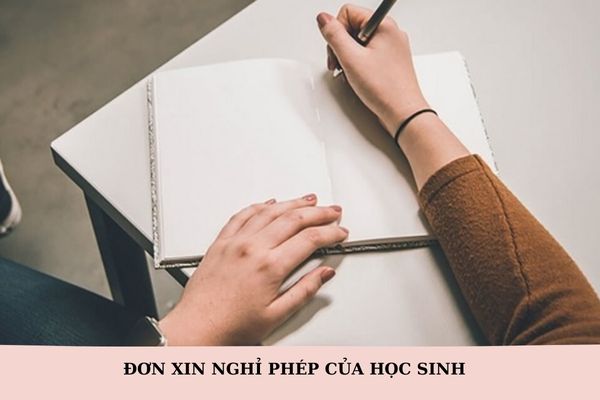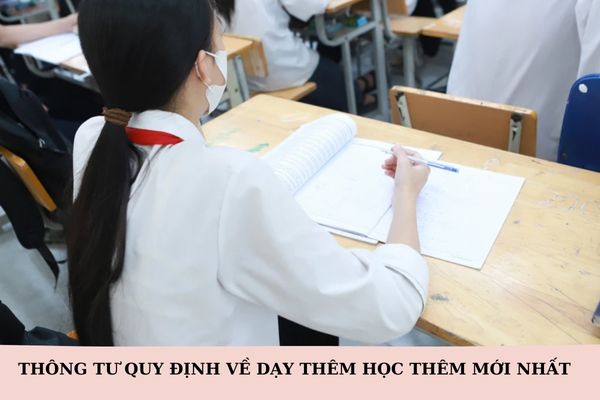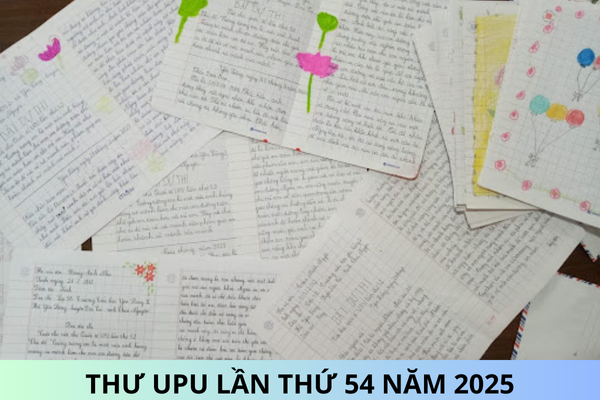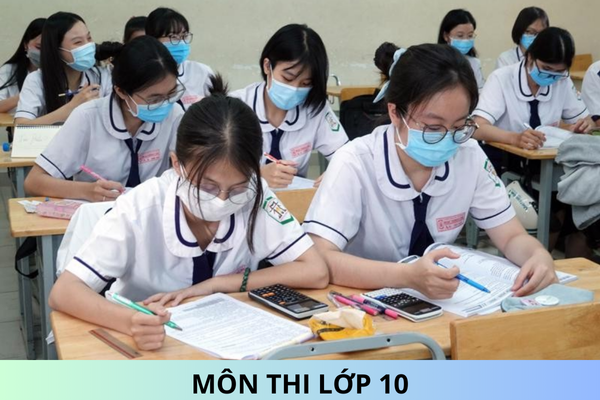Link to the round 7 of the "Trạng Nguyên Tiếng Việt" Competition for the 2024 - 2025 year in Vietnam
Link to the round 7 of the "Trạng Nguyên Tiếng Việt" Competition for the 2024 - 2025 year in Vietnam
Primary school students from grades 1 to 5 in Vietnam who have internet access and voluntarily register as members of the website www.trangnguyen.edu.vn can voluntarily participate in the "Trạng Nguyên Tiếng Việt" Competition.
The schedule for the "Trạng Nguyên Tiếng Việt" Competition for the 2024 - 2025 year in Vietnam is detailed as follows:
Round 7 of Trạng Nguyên Tiếng Việt for the academic year 2024 - 2025 begins from December 2, 2024 - December 7, 2024
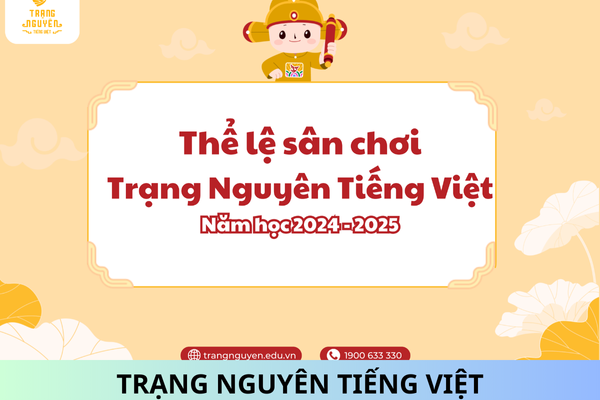
Link to the round 7 of the "Trạng Nguyên Tiếng Việt" Competition for the 2024 - 2025 year in Vietnam (Image from the Internet)
What are types of organization of primary schools in Vietnam?
Based on Article 4 of the Primary School Charter issued with Circular 28/2020/TT-BGDDT on the type of primary schools and classes:
Article 4. Types of primary schools and Classes
- Primary schools are organized into two types: public and private.
a) Public primary schools are state-invested, ensuring operational conditions and representing ownership.
b) Private primary schools are invested by domestic or foreign investors and ensure operational conditions.
- Primary classes in multi-level schools, specialized schools include:
a) Primary classes in schools with multiple levels of education.
b) Primary classes in semi-boarding ethnic schools.
c) Primary classes in educational facilities for children with disabilities.
d) Primary classes in reformatory schools.
- Other educational facilities implementing elementary education programs include: community learning centers; classes for children in difficult circumstances who cannot attend school; classes for children with disabilities.
Thus, primary schools are organized into two following types:
- Public primary schools invested by the state, ensuring operational conditions and representing ownership.
- Private primary schools invested by domestic or foreign investors and ensuring operational conditions.
What are the duties of a primary school teacher who serves as a homeroom teacher in Vietnam?
Based on Clause 2, Article 27 of the Primary School Charter issued with Circular 28/2020/TT-BGDDT on the duties of teachers:
Article 27. Duties of Teachers
[...]
- Teachers in charge of homerooms, in addition to the duties specified in Clause 1 of this Article, have the following tasks:
a) Proactively grasp information about each student of the class assigned as homeroom; develop educational activities of the class that clearly show the goals, content, and educational methods ensuring feasibility, suitable to the characteristics of students, with the circumstances and actual conditions to promote the progress of the entire class and each student.
b) Implement educational activities according to the plan developed and approved by the principal.
c) Closely coordinate with parents or guardians, teachers, youth team leaders, and related social organizations to organize educational activities and support, supervise the learning and training of students in their homeroom class; compile reviews, assess students at the end of semester I and the end of the academic year; guide students in voting for awards and recommend commendations; prepare lists of students recommended for grade retention; complete student report cards.
d) Report regularly or unexpectedly on the status of the class to the principal.
[...]
Thus, primary school homeroom teachers have the following responsibilities:
- Implement the elementary education program and the school's educational plan. Proactively execute and take responsibility for educational plans; autonomously assume responsibility for academic duties (content, educational methods, student assessment) and the quality, efficacy of educating each student in their charge, ensuring conformity with the education program's regulations, suited to the student profile and the specific conditions of the school.
- Participate in developing the educational plans of the specialized department and the school; consistently update directives from the field; prepare, teach, and evaluate students as prescribed; carry out other professional activities.
- Build friendly, democratic relationships between teachers and students, with parents, and the community; empower students to be active, creative, confident, self-reliant in learning and training.
- Preserve the qualities, honor, and prestige of educators; demonstrate cultural behavior, solidarity, and support for colleagues; serve as role models for students; love and treat students fairly and respectfully; protect students' legitimate rights and interests.
- Conduct self-assessment according to the teacher's professional standards; engage in self-study, self-improvement of professional competencies; participate in routine professional teacher training as prescribed; exchange and share expertise with colleagues inside and outside the school via professional gatherings and training sessions.
- Integrate information technology in teaching, learning, and professional activities; be creative, flexible in self-making teaching implements.
- Engage in selecting textbooks as regulated; propose the school equip reference publications, teaching devices as appropriate for use during teaching.
- Contribute to education quality assessment.
- Participate in carrying out mandatory education, education popularization, and literacy eradication locally.
- Cooperate with the Youth Pioneers Team, student families, community, and related social organizations to fulfill educational duties.
- Manage and execute the educational plan at the school site when assigned by the principal.
- Carry out other tasks as prescribed by the law and as assigned by the principal.
- Proactively grasp information of each student in the class assigned as homeroom; develop class educational activities that clearly demonstrate objectives, content, educational methods ensuring feasibility, appropriate for student characteristics, with circumstances and actual conditions to promote progress of the whole class and each student.
- Conduct educational activities as per the plan crafted and approved by the principal.
- Work closely with parents or guardians, educators, chief youth personnel, and involved social organizations in organizing educative activities and supervising and guiding the studies and behavior of students in their class; compile remarks, evaluate students at end of semester I and end of school year; guide pupils in self-evaluated commendations; write lists of pupils recommended for repetition; complete pupils' record books.
- Report periodically or suddenly about the class situation to the principal.
